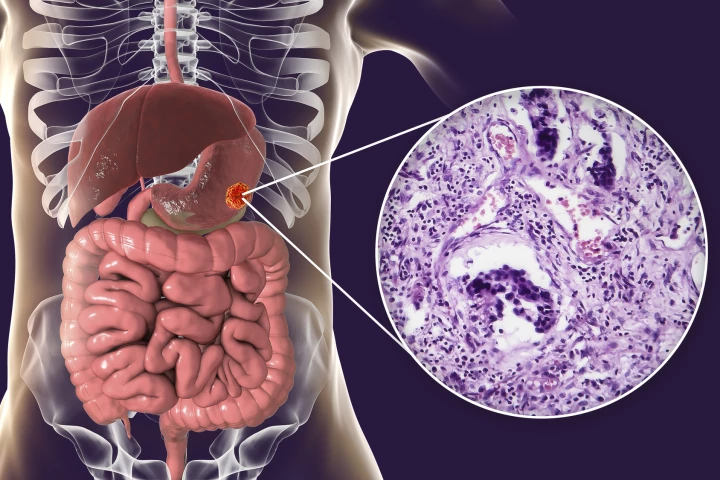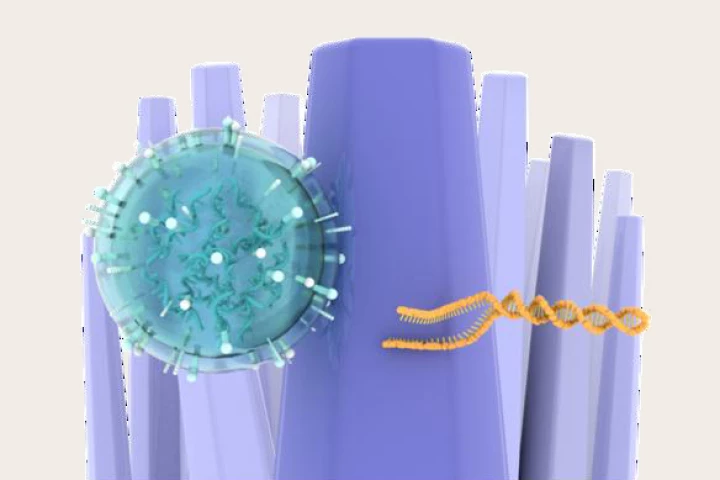Biomarkers
-
Researchers have identified a blood protein ‘signature’ in the complement system, part of the immune system, of patients with long COVID that may improve the diagnosis and lead to a treatment for the debilitating condition.
-
MIT scientists have developed an easier method for diagnosing lung cancer – breathe in some inhalable nanoparticle sensors, then pee on a stick. The method should be less invasive than CT scans, and easier to perform in low-income regions.
-
Researchers have analyzed blood proteins to estimate the biological - as opposed to the chronological - age of bodily organs to predict a person’s risk of disease. The approach may lead to the earlier detection of disease in apparently healthy people.
-
Researchers have developed a handheld device that shines a safe laser into the eye to detect biomarkers of brain damage following a concussion or other traumatic brain injury, providing rapid, on-site diagnosis at the time of injury.
-
Researchers have identified a blood protein that can diagnose gastric and other cancers and is more accurate than existing biomarkers, even in the early stages of the disease. It may lead to the earlier diagnosis of these often stealthy cancers.
-
New research has found that elevation of a biomarker predicts the worsening of multiple sclerosis disability up to two years before it occurs, providing a timeframe in which interventions can be implemented to prevent or slow worsening disability.
-
Researchers have developed a quick, cheap, and highly sensitive blood test to detect a telltale protein produced by cancer cells. The test can pick up a range of cancers before symptoms appear and could be key to early diagnosis of the disease.
-
Researchers have developed a more convenient way of measuring omega-3 fatty acid levels in the blood, an important biomarker of disease risk, making it easier to obtain critical information about cardiovascular and cognitive health.
-
Researchers have found a way to determine whether someone has suffered a concussion by measuring the blood levels of three biomarkers within six hours of the injury. The blood test could be used alongside existing tests for a more accurate diagnosis.
-
Three new prostate cancer biomarkers have been identified that improve the visibility of cancer cells used by pathologists to grade the disease’s severity, which could help determine which patients require urgent treatment and those who don’t.
-
Researchers have used nanowires to ‘catch-and-release’ DNA in urine, enabling them to detect mutations that signify the presence of a brain tumor. Their method may one day mean that invasive tissue biopsies are no longer required.
-
Researchers have identified biomarker proteins in genetically predisposed children that predict the autoimmunity that leads to type 1 diabetes months before symptoms appear. The discovery could lead to earlier detection and treatment of the disease.
Load More











